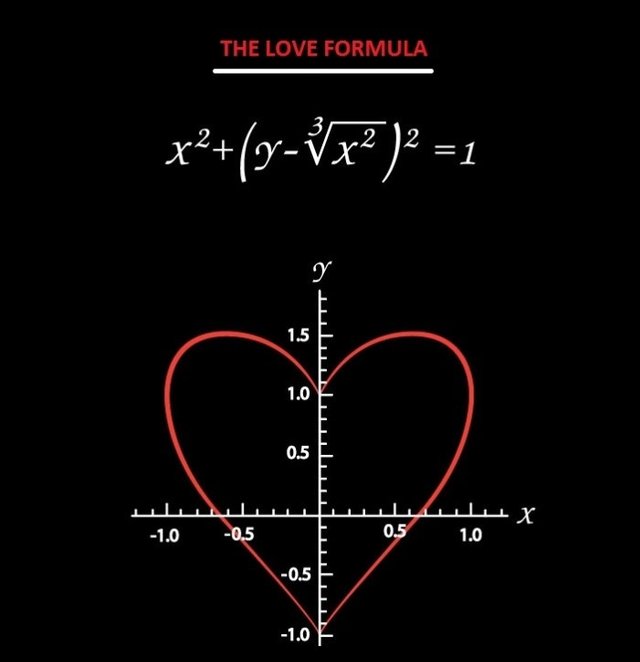The love formula.

Applied mathematician Hannah Fry says there are several. Her new book, The Mathematics of Love, features a chapter on each stage of the romantic journey, taking in online dating, chatting people up, going on dates, settling down, getting married and being in a long-term relationship.One of the most interesting mathematically-minded tips, rather than straight equations, is based on data from OKCupid.The dating site's co-founder Christian Rudder, himself a mathematician, compared the number of unsolicited messages users received versus how attractive other people on the site had rated them as."He found that there really was no correlation," Dr Fry told i100.co.uk. "The people that received the most messages were rated as both 'really beautiful' and 'really ugly'." This probably ties into game theory, where an individual decides on a course of action based on what they think someone else will do: So 'beautiful' people aren't getting as many messages as you think...Dr Fry decried the fact that "two fairly serious mathematicians published in a fairly serious journal" tried to apply game theory to what men should buy women in order to get them to sleep with you.Much more interesting is a re-examination of the work of Dr John Gottman, who filmed couples speaking about the most contentious issue in their relationship for 15 minutes, measuring their heart-rate and blood pressure, and scoring them on how negatively or positively they responded during the discussion.The end result was that he could predict with 90 per cent accuracy whether the couples were destined to divorce."The crucial factor was the language people used," Dr Fry told us. "If you had a deep-seated positive view of your partner you would dismiss and find excuses for negative behaviour by saying things like 'you're just tired'."But if you had a broadly negative view, saying things like 'you always do this, you never think of this', it meant you would divorce."
These so-called spirals of negativity cannot only be used to explain these back and forth exchanges in a relationship but also the way two countries behave during an arms race."It's the same maths," Dr Fry said. "Arguing couples can therefore be compared to countries on the brink of nuclear war."One of the more arresting chapters in the book is optimal stopping theory, which posits the ideal time to stop looking for a partner and settle down with someone."If you're 80 years old you could look back on your life and all your partners to decide who the best one was, but if you're looking ahead and still meeting people you don't have that luxury," Dr Fry said.Optimal stopping theory is the idea you could have a version of that list before you reach the end of your life; based on the probability of stopping and settling down being linked to the number of potential partners you reject, like so:
Put bluntly, this formula tells you how many people, on average, you need to reject before giving you the best chance of finding your ideal partner - and the answer is 37 per cent.While you will of course have no idea ahead of time how many partners you may end up having, interestingly the formula holds true when applied to a period of time as well, which could be possible to plan. So if you had 'decided to start dating when you turned 18 but wanted to be settle down by 35, statistically speaking, you should reject anyone you met before the age of 24.Dr Fry laughed when asked if she's worried about receiving letters from people who were cast aside by adherents to her book."It comes with risks," she admitted. "But people tend to do this anyway; they don't choose to marry the first person they meet."The book is written in a tongue in cheek style, and Dr Fry explained the point is to show how maths can be applied to many different scenarios and challenge its perception as a "rigid, boring topic", as well as to look at love from another perspective."The example I give to my students is that say if Google Maps says your journey time is 1hour 24minutes, you wouldn't expect to be there in exactly that time, more likely between 1hour 10minutes and 1hour 40minutes," she said."But having these guidelines is better than nothing at all."So, is there one equation that stands out, one that can show us the mathematical formula for love?"There isn't one," Dr Fry told us. "There isn't one single equation to help you fall in love. It's just about being logical and sensible."
The Mathematics of Love, by Hannah Fry and From TED Books and Simon & Schuster, is out in the UK in hardback on February 12
If you like this story please give some feedback so I know and add some more interesting stories.
You should link to the book and the original article -- https://www.indy100.com/article/is-there-a-mathematical-formula-for-love--xyQHvH9Qng